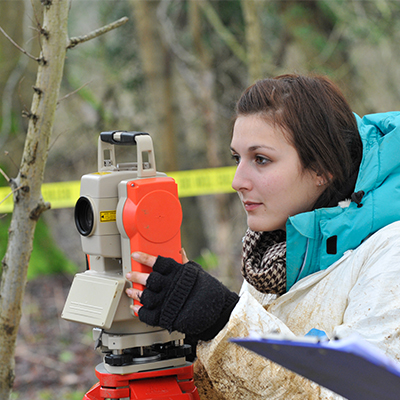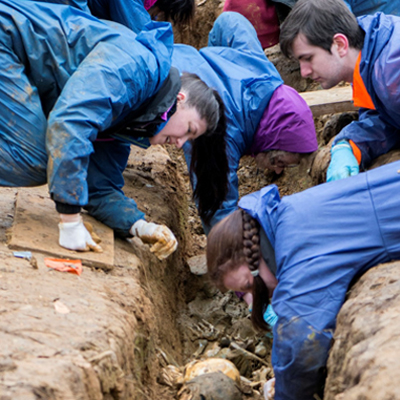- Job title Forensic Anthropology PhD Student
- Organisation Cranfield University
- CourseForensic Archaeology and Anthropology MSc , 2015
Why did you choose Cranfield?
I’ve always had an interest in science, and I really liked the medical sciences degree I completed at Glamorgan University. In my third year of my undergraduate degree I did a module in anthropology and I absolutely loved it. I found a lot of natural synergy for the subject and we did a lot of work on biological profiling, which is a technique commonly used in forensic anthropology to help identify an individual. So that sparked my interest in that area and I knew that was the path I wanted to take rather than the medicine route.
The forensic side came when I was actually looking at Cranfield. I looked at different universities for master’s in anthropology but the modules at Cranfield were so appealing and unique and different that I decided this was definitely the path that I would like to take. I’m very interested in anthropology within a modern setting so it kind of grew out of that - my background isn’t in forensics but I did a lot of anatomy and that side of things in my medical sciences course.
What were the highlights of your course and time at Cranfield?
A lot of the modules are really interesting, there’s quite a high practical element to the course. There’s an elective module to go and help on an archaeological excavation so that was really great to see it as it happens and be directly involved. We went to Ogbourne St Andrew near Marlborough and we were looking for signs of settlement, after a team did geophysics work on the ground to identify areas to excavate further, so they’re continuing that work now.
Shortly after I completed my master’s I assisted on CFI deployment with two of the lecturers to assist in some identification of WWI and WWII casualties with Roland Wessling and Dr Nicholas Marquez-Grant.
What was Cranfield's impact
I’m really enjoying my PhD, it’s a chance to immerse myself in my subject further and really get to know the subject in a lot more depth. I was surprised by how different the PhD is from the master’s; obviously people had told me about it before I started. It’s a lot of self-directed learning and self-motivation, which I think could be quite challenging at times, but I enjoy working that way because you do get to go into as much depth as you like. The master’s thesis is a fantastic way to lead into doing self-directed learning and reading. Currently I’m doing literature reviews, so I spend a lot of time researching and ensuring I understand the subject completely: it’s a lot of primary and secondary research and meetings with people who have expertise and interest in the area. The library is fantastic I’m always there.
What do you hope to do after your studies?
After my PhD I’m interested in continuing research in this area by entering a career in academia. I'm particularly interested in how pathological conditions affect the skeleton and hope to continue into a career within this field.
There’s a large area of physical anthropology that looks at diseases that affect the bone and I’m interested in what diseases are caused by lifestyle, particularly in the modern day and how they would impact on the bone.

